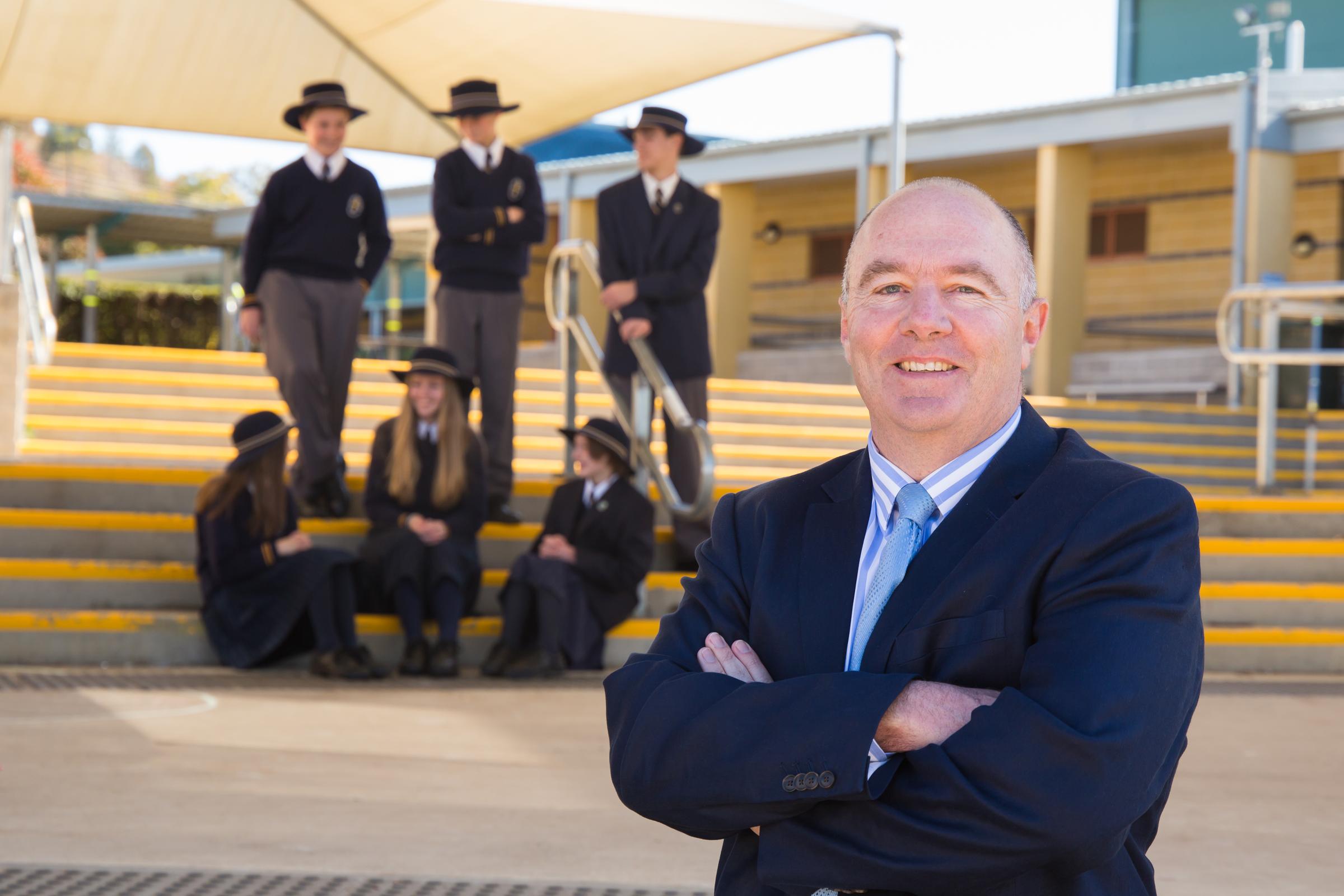Assistant Principal - Mr Larkin

Stories that Shape Who We Are
As human beings, stories and narratives are one of the most powerful tools that we have invented.
Anthropologists argue that storytelling is fundamental to every known culture. That it is one of the key ways that we define ourselves and shape our identity and create our values that influence our lives.
Just as the brain detects patterns in the visual forms of nature – a face, a figure, a flower – and in sound, so too it detects patterns in information. Stories are recognisable patterns, and in those patterns we find meaning. We use stories to make sense of our world and to share that understanding with others.
Over the years one of my favourite stories that I have been inspired by as a teacher is about a famous headmaster who, when delivering his farewell speech, recalled fondly the things that mattered most in his school. In particular, he recalled two boys: one had been a champion at all that he had done, he won the prizes and went on to become a successful businessman achieving great fame and fortune. The other was an ordinary boy who’d won nothing in his life, who had been plain and unspectacular in everything that he did. But when travelling in a train with the boys to some event the headmaster recalled how they were stuck in a carriage with a mother who had a squalling, howling infant. Eventually the baby vomited all over itself and its mother. The successful boy looked the other way as did everyone else in the carriage being unsure or uncomfortable by the situation. Everyone, that is, except the ordinary boy, Chuff Rogers. Chuff took out his handkerchief and helped to wipe the baby and mother clean. In the end, after decades teaching, Chuff Rogers was the boy who the headmaster remembered most proudly and who he felt was one the school’s outstanding successes. The other boy – he couldn’t remember his name.
Service to others is a dominant theme promoted within the College, inspired by the Gospels, we endeavour to instil values that not only make for a healthy culture within the school but also in the wider society as our young men and women leave to forge a path for themselves and become a part of the wider world. In his letter to the Thessalonians St Paul writes, “We urge you to … encourage the timid, help the weak, be patient with everyone. See that no one pays back wrong for wrong, but at all times make it your aim to do good to one another and to all people.” These two simple sentences articulate a creed that the College aspires to engender within all in our community. Such a creed challenges dominant societal thinking that pervades our consumeristic culture and it is difficult for young people to resist such norms which constantly urge them to focus on self ahead of others.
Given the opportunity our young people often rise to the occasion. Recently, Mrs Laird took a group of Year 10 students to a sports day for students with disabilities. Our young men and women were marvellous in aiding and supporting and encouraging these children. Likewise, at the end of Term 3, our Year 12 students spent a day in the local Catholic primary schools serving others. They too were magnificent in the way they put aside their own needs to focus on that of others. These stories are uplifting and show what is possible when we put aside ‘self’ for others.
Unfortunately, a good number of the issues that I deal with in my position stem from selfishness and a self-centred approach to life. Students who disrupt the learning of others or come into conflict with peers are usually reckless, thoughtless or careless in their behaviour, with little to no concern of how their actions impact on others. There are those who when challenged by this realisation work to make a change. Some others are hard-wired to simply see the world through the lens of self-interest.
Regardless of how a student sees their place in the world, on enrolment, a student accepts that they will endeavour to live by the Code of Conduct. This code was constructed through a collaborative process involving students and staff a number of years ago before my arrival. My intention is that students will live by this code if they want to be members of this school community. Whilst I accept that we make mistakes and school is a place of learning, should a young person continue to wilfully live outside this code then a serious re-consideration of their enrolment needs to take place.
Care: caring for others; caring for yourself; caring for the College and wider environment; acting safely and considerately; service.
Courtesy: treat any member of the school with dignity; display good manners.
Respect: respect students’ rights to learn and teachers’ right to teach; follow teachers’ instructions; work cooperatively; respect individual differences.
Responsibility: work to the best of your ability; be organised, prepared and punctual; attend school unless you are legitimately excused; wear the uniform correctly.
This Code of Conduct is a simple but powerful narrative that creates a clear vision of how life should be lived. Should we allow this story to shape who we are we will have a flourishing College community.
Mr Mick Larkin - Assistant Principal
